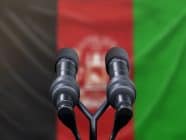Media researchers and journalists in busy newsrooms have spent decades ignoring each other. Anyone who tries to bring the two together has to work out how to combine the ordered, stately pace of academia with the sound and fury of modern media output.
Now, the Swiss Association of Communication and Media Research (SACM) is launching another attempt. For two days this month in Winterthur, members of the SACM will deal with “Transdisciplinary” and start a dialogue with media practitioners like Roger de Weck, the Director General of the Swiss public broadcaster SRG, and Norbert Neininger, the publisher and editor in chief of the regional newspaper Schaffhauser Nachrichten. Media researchers shall be motivated to practice what they are researching and teaching, to communicate more with the public, with journalists, and with professionals inside and outside of the media industry, who might benefit from their research results.
Their effort is noble – of course, journalism and media research should provide a benefit to society, particularly if research is funded with taxpayer money. It’s certainly not accidental that the push is coming from Vinzenz Wyss, the president of the scientific community who is professionally based at the Zürcher Hochschule in Winterthur. Years ago, the University of Zurich “outsourced” its journalism training as well as its journalism research to this technical college to reduce the influx of students. Such colleges of applied sciences have always been more interested in contacts with the industry and with newsrooms. Additionally, in the German speaking world, Wyss belongs to a handful of experts known to care for quality management in journalism – another case of “Don Quixoterie” in an environment where a sustaining business model is missing and where “quality” has become a trite and overused formula to camouflage job reductions in newsrooms and the accompanying deprofessionalization of journalism by PR-Speak.
Thus, we have arrived at the core of the problem – incentives to do what obviously should be done are lacking on both sides. In newsrooms, nearly everywhere positions were first cut which once were dedicated to the professional observation of media and journalism, including occasional media research. If media outlets are now covering the media and journalism, they do so with much less competence compared to coverage of politics, sports, or the election of a new pope.
However, researchers also care very little for disseminating their research results, commonly hopping from one conference to the next to present their latest research results in 15-minute slots to their peers. The young academics are under increasing pressure to publish their work in peer reviewed journals. Nobody cares whether more than a handful of fellow researchers take notice of their efforts. The review process itself – the internal quality control of scientific research – becomes more questionable and absurd with the increasing number of scientific journals. Research is not only differentiating and ramifying, but also breaking free. There is a lack of researchers and journalistic expertise to consolidate research results, and to evaluate and accompany the research “machinery” in a benevolent but critical way.
The Swiss National Science Foundation at least recently signaled, with its Agora-Program, that it is aware of the problem. In neighboring Germany, foundations like the Robert Bosch Stiftung, the Bertelsmann Stiftung, and the Stiftung Volkswagenwerk, as well as more recently, the foundation of the SAP-cofounder Klaus Tschira, have repeatedly invested in the improvement of science communication and science journalism – however by mostly focusing too narrowly on the media coverage of natural sciences, medicine, and technology.
Media practitioners particularly tend to disavow that in the present traditional media industry and journalism crises, media research might play a key role in discovering new ways of informing and communicating publics. On the other hand, media research probably would need to be more focused on topics which are relevant for media practitioners and which might help to solve the problems of a mediatized civil society. Without endangering press freedom, our societies need to be liberated from mounting info-garbage and be adequately provided with high-quality journalism which meets professional standards, which also remains at least partially independent from public relations, and which also resists increasing influence from politics and from powerful media-conglomerates.
Even if such squaring of the circle could be achieved, the challenge remains to stimulate both sides –newsrooms as well as communication researchers – to do what they supposedly know how to do best: to communicate – however, with each other instead of against each other, or at cross-purposes.
First published: Neue Zürcher Zeitung, April 9, 2013
Photo credits: Jan Krömer / Flickr CC
Tags: Journalism Education, Journalism research, Media research, SGKM, Sgkm13, University, Winterthur, Zürcher Hochschule in Winterthur














































